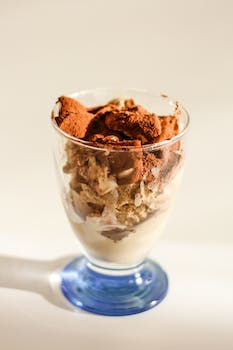

-
Table of Contents
Unleashing the Flavor: Exploring the Impact of Saliva on Taste
Introduction
The sense of taste plays a crucial role in our daily lives, allowing us to enjoy and appreciate the flavors of various foods and beverages. However, what many people may not realize is that saliva has a significant impact on our sense of taste. Saliva, the watery fluid produced by the salivary glands in our mouths, not only helps with digestion but also plays a vital role in enhancing our ability to taste and perceive different flavors. In this article, we will explore the impact of saliva on the sense of taste and how it influences our overall gustatory experience.
The Role of Saliva in Taste Perception
The sense of taste is a complex process that involves the interaction of various factors, one of which is saliva. Saliva plays a crucial role in taste perception, as it helps to dissolve food particles and deliver them to the taste buds on the tongue. This article will explore the impact of saliva on the sense of taste and delve into the mechanisms by which it influences our perception of flavors.
Saliva, a watery fluid secreted by the salivary glands, serves multiple functions in the oral cavity. One of its primary roles is to moisten the mouth, making it easier to chew and swallow food. However, saliva also contains enzymes that initiate the digestion process and help break down complex molecules into simpler forms. These enzymes, such as amylase, play a vital role in taste perception by breaking down carbohydrates into sugars that can be detected by the taste buds.
Furthermore, saliva acts as a solvent, dissolving food particles and allowing them to come into contact with the taste buds. The taste buds, located on the papillae of the tongue, are responsible for detecting different flavors, such as sweet, sour, salty, bitter, and umami. When food enters the mouth, saliva helps to disperse the flavors across the taste buds, enhancing our ability to perceive and differentiate between different tastes.
In addition to its role as a solvent, saliva also acts as a lubricant, facilitating the movement of food across the tongue and into the throat. This lubricating effect is particularly important for taste perception, as it ensures that the taste buds are in contact with the food particles for an extended period. The longer the taste buds are exposed to the flavors, the more time they have to send signals to the brain, resulting in a more intense and accurate perception of taste.
Moreover, saliva contains proteins and peptides that bind to taste receptors and modulate their sensitivity. These proteins, known as salivary proline-rich proteins, have been found to enhance the perception of sweet and umami tastes while reducing the perception of bitter tastes. This modulation of taste sensitivity by saliva helps to balance our perception of different flavors and prevent overwhelming sensations.
Interestingly, the composition of saliva can vary among individuals, which can influence their taste perception. For example, individuals with a higher concentration of salivary amylase may have a heightened sensitivity to sweet tastes, as their saliva is more efficient at breaking down carbohydrates into sugars. On the other hand, individuals with a lower concentration of salivary amylase may have a reduced sensitivity to sweet tastes.
In conclusion, saliva plays a crucial role in taste perception by dissolving food particles, delivering them to the taste buds, and modulating taste sensitivity. Its functions as a solvent, lubricant, and modulator of taste receptors contribute to our ability to perceive and differentiate between different flavors. Understanding the impact of saliva on the sense of taste can help us appreciate the complexity of this sensory experience and shed light on individual differences in taste perception.
How Saliva Composition Affects Taste Sensation

The sense of taste is a complex process that involves the interaction of various factors, one of which is saliva composition. Saliva, often overlooked in its role in taste perception, plays a crucial role in our ability to taste and enjoy food. The composition of saliva can greatly affect taste sensation, and understanding this impact can provide valuable insights into the science of taste.
Saliva is a watery fluid secreted by the salivary glands in our mouth. It contains a variety of substances, including enzymes, electrolytes, mucus, and antibacterial compounds. These components work together to facilitate the process of digestion and maintain oral health. However, they also have a significant impact on our sense of taste.
One of the key ways in which saliva composition affects taste sensation is through its role in the dissolution of food molecules. When we eat, saliva helps to break down food particles and dissolve them, allowing the taste receptors on our tongue to detect and interpret the flavors. The enzymes present in saliva, such as amylase, play a crucial role in this process by breaking down complex carbohydrates into simpler sugars that can be detected by our taste buds.
Furthermore, the electrolytes present in saliva, such as sodium and potassium, also contribute to taste perception. These ions help to enhance the perception of certain tastes, such as saltiness and sweetness. For example, when we consume foods that are high in sodium, the sodium ions in saliva interact with the taste receptors on our tongue, amplifying the perception of saltiness. Similarly, the presence of potassium ions can enhance the perception of sweetness in certain foods.
In addition to its role in taste perception, saliva composition also affects the overall mouthfeel of food. The mucus present in saliva helps to lubricate the food, making it easier to chew and swallow. This lubrication also contributes to the overall sensory experience of eating, as it affects the texture and consistency of the food. For example, a dry mouth, which is often associated with reduced saliva production, can result in a less pleasurable eating experience, as the food may feel sticky or difficult to swallow.
Moreover, the antibacterial compounds present in saliva also play a role in taste perception. These compounds help to maintain oral hygiene by inhibiting the growth of bacteria in the mouth. When the balance of these compounds is disrupted, such as in cases of oral infections or certain medications, it can affect taste perception. For example, some antibiotics can alter the composition of saliva, leading to a metallic or bitter taste in the mouth.
In conclusion, the composition of saliva has a significant impact on our sense of taste. The enzymes, electrolytes, mucus, and antibacterial compounds present in saliva all contribute to taste perception and the overall sensory experience of eating. Understanding the role of saliva in taste sensation can provide valuable insights into the science of taste and may have implications for the development of new food products and therapies for taste disorders.
Saliva's Influence on Flavor Perception
The sense of taste is a complex and fascinating aspect of human perception. It allows us to experience and enjoy the flavors of the food and beverages we consume. However, taste is not solely determined by the taste buds on our tongues. Saliva, the watery fluid in our mouths, plays a crucial role in flavor perception.
Saliva is often overlooked when it comes to discussing taste, but it is an essential component in the process. It is produced by the salivary glands and contains various enzymes, electrolytes, and proteins. These components not only aid in digestion but also interact with the taste buds on our tongues.
One of the primary functions of saliva is to moisten the food we eat, making it easier to chew and swallow. This moisture helps dissolve the molecules in the food, allowing them to come into contact with the taste buds. Without saliva, our taste buds would not be able to detect the flavors effectively.
Saliva also acts as a solvent, helping to release the flavor compounds present in the food. Many flavor molecules are fat-soluble, meaning they need to be dissolved in fat to be detected by our taste buds. Saliva contains lipase, an enzyme that breaks down fats, allowing these flavor compounds to be released and detected by our taste buds.
Furthermore, saliva contains amylase, an enzyme that breaks down carbohydrates. This enzyme plays a crucial role in the perception of sweetness. When we consume foods high in carbohydrates, such as fruits or desserts, amylase in saliva breaks down the complex carbohydrates into simple sugars. These sugars then interact with the taste buds, creating a sweet sensation.
Saliva also helps to cleanse the taste buds, ensuring that they are receptive to new flavors. As we eat, food particles can get stuck on our taste buds, dulling their sensitivity. Saliva contains antimicrobial properties that help remove these particles, allowing the taste buds to function optimally.
In addition to its direct influence on taste buds, saliva also affects the overall mouthfeel of food. The texture and consistency of saliva can impact how we perceive flavors. For example, a dry mouth can make food taste less flavorful, while a well-moistened mouth can enhance the perception of flavors.
It is worth noting that saliva composition can vary among individuals, which can lead to differences in flavor perception. Some people naturally produce more saliva, while others may have a drier mouth. These variations can affect how flavors are experienced and enjoyed.
In conclusion, saliva plays a significant role in flavor perception. It moistens food, aids in the release of flavor compounds, breaks down carbohydrates, cleanses taste buds, and influences mouthfeel. Understanding the impact of saliva on taste can help us appreciate the intricate relationship between our senses and the food we consume. So, the next time you savor a delicious meal, take a moment to appreciate the role of saliva in enhancing your flavor experience.
Q&A
1. How does saliva impact the sense of taste?
Saliva helps to dissolve food particles, allowing taste receptors on the tongue to detect and transmit taste signals to the brain.
2. What role does saliva play in the perception of flavors?
Saliva moistens the taste buds, enhancing their sensitivity to flavors and facilitating the release of taste molecules from food.
3. Can a lack of saliva affect the sense of taste?
Yes, a reduced saliva flow or dry mouth can lead to a diminished sense of taste as it hinders the ability to dissolve and detect taste molecules effectively.
Conclusion
In conclusion, saliva plays a crucial role in the sense of taste. It helps to dissolve food particles, allowing taste buds to detect and transmit flavors to the brain. Additionally, saliva contains enzymes that break down food molecules, further enhancing the taste experience. Without sufficient saliva production, the sense of taste may be compromised, leading to a diminished ability to perceive flavors accurately.











